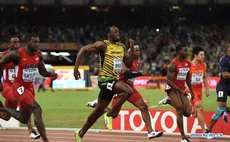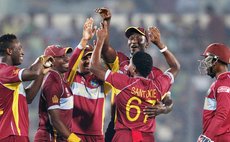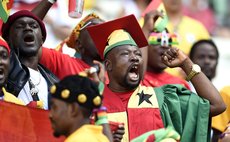FIFA forced to be a spiritual force
Events of the last several months, or even the last several years, have forced an awakening in global football. For many the awakening has been rather unwilling. Too many would prefer the status quo to remain undisturbed – comfortable in a culture of blatant corruption that has gone on without embarrassment to most of the 209 countries comprising the body of those entitled to give their vote in matters applicable to the administration of the sport. For most the attitude has been quid pro quo. What's in it for me, and not merely in terms of decisions taken but to a large majority there remained business transacted in actual money changing hands. The securing of a vote meant as well the passage of funds under the table.
Ironically it was pressure exerted by FIFA's own internal ethics committee which began a shaking of the boat. Gently at first when sanctions began to be meted out against a bunch of administrators in the Caribbean alleged to have engaged in the practice of making payouts to voting contingents to consolidate their campaigns in seeking regional high office. Cumulatively, further pressure came from a potent source – the major international sponsors who in effect have been the ones with the real means to stoke the fires capable of cleansing effect in FIFA.
The FIFA presidential elections took place in Zurich, Switzerland on 26th February, 2016. With each member nation entitled to a vote, the congress comprised 54 African states, 53 European states, 46 Asiatic states, 35 from CONCACAF (North and Central America and the Caribbean states), 10 from South America, and 11 from Oceanic states. The total of the 209 on hand to elect a successor to Sepp Blatter who had been at the helm for multiple terms, but had stepped down shortly after his recent election to office in wake of quite a few of FIFA's top officials being arrested on corruption charges by the American FBI and Swiss anti-corruption agencies and judicial bodies.
Of very peculiar bearing was the stricture that all delegates to the elections congress were required to leave their mobile phones behind before proceeding to the voting booths. The obvious concern here was to prevent delegates from using their cell-phones to photograph their ballot paper, ostensibly as proof of voting to collect bribe offers!
On the first ballot Gianni Infantini, 45, scored 88 votes, Sheikh Salman, 50, of Bahrain scored 85, Prince Ali Bin Hussein, 40, of Jordan scored 27, and Jerome Champagne, 57, scored 9. None of them netted the mandated two-thirds majority of 140 votes. The second round of voting (for a simple majority) saw Infantini emerging winner with 115 votes, ahead of Salman 88 votes and the Prince 4 votes. It should be noted a fifth candidate Tokyo Sexwale, 62, of South Africa withdrew ahead of the voting proceedings, indicating a willingness to serve under who ever would be elected.
If it is really concerned with the rectitude and quality of football development, the world will be looking to see how global football matters unfold within a reasonably foreseeable future. Not the customary first 100 days in office, that the political world usually fashions as a benchmark, but more practically, say, in the next two years we may judge how the new administration of Infantini will have comported itself.
Infantini held out the promise that he would seek to have the final tournament phase of the World Cup expanded from 32 nations to 40. How much opposition this will attract from the European quarter in view of the World Cup impinging on requirements of metropolitan big leagues averse to their standout players being away too long on international duty is left to be seen. But the European contingent is only 53, even though they comprise the richest element in global football by a long way. Metropolitan club football is the biggest thing in all football. The big clubs have their own very special interests and have been content to grant exclusive concern to their priorities while, it seems, closing their eyes to irregularities in FIFA.
For the metropolitan leagues the World Cup may only represent a showcase presented every four years, and of sole value to them in the business of talent spotting by their clubs! Thus, for instance, Didier Drogba, known to the world over as a super star with Chelsea in the English Premier Division, may have been duly spotted playing for Ivory Coast in the World Cup and in the African Nations Cup, and through his prowess elevated to the salaried position of being paid 290 pounds per week by the London club.
These clubs know the World Cup as a ladder to success for many aspiring players, but they can't be drawn into the politics of the sport at that level. They have been tolerant of the laissez faire situations that have existed for too long. Thankfully, the sport owes much to the global sponsors who have eventually decided to put their feet down, saying enough is enough. People like CocaCola, McDonalds, ADIDAS, VISA and many others have demanded that FIFA must clean up their act. As indication of their seriousness they have shown that the bonanza of their sponsorship taken for granted. As it is, some $551 million (US) has arisen as a shortfall in the recent FIFA budget may not be. The promise by the FIFA presidential candidates of more substantial funding to be utilized for football development in the more needy countries may well come under grave doubt. Expectedly, FIFA will be eager to raise the bar for accountability on the part of its member nations pertaining to how grant funds have been expended. It is mandatory that FIFA becomes a viable spiritual force transmitted at vertical and horizontal direction. Too many of its constituents have been as corrupt as their global leadership.




